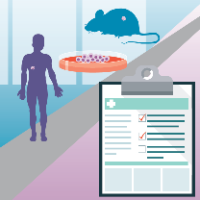Advancement of precision oncology by integration of highly sensitive protein profiling technologies and patient-derived cell models for functional efficacy testing
Immuno-Oncology Insights 2021; 2(4), 171–185
10.18609/ioi.2021.013
Precision oncology is defined as the individualized treatment of a patient´s tumor based on molecular, cellular and functional analyses of tumor tissue specimen (National Center for Tumor Diseases Heidelberg. Precision oncology, 2020). To date, mostly genomic analyses of tumor biopsy tissue are used to identify aberrations present in the patient’s tumor and in result matching drug treatments addressing these alterations. Based on such analyses and considering available clinical and histopathological data, oncologists discuss and select tailored therapies in molecular tumor boards established at clinical centers. A prominent example of a precision therapeutic is Imatinib, which was approved amongst others for the treatment of chronic myeloid leukemia (CML) and gastrointestinal stromal tumors (GIST) harboring activating BCR-ABL gene fusion and c-KIT mutations, respectively. Another early example of precision oncology is the use of tyrosine kinase inhibitors (e.g. Gefitinib, Erlotinib) for treatment of non-small-cell lung cancer (NSCLC) harboring activating mutations in the epidermal growth factor receptor (EGFR). More recently, tissue-agnostic, targeted treatment approaches for tumors harboring TRK gene fusions received clinical approval. Promising results of this novel approach to tumor therapy have led to significant changes and restructuring in the treatment of tumor patients at clinical centers worldwide in recent years. Necessary infrastructures with molecular genomic core facilities and molecular tumor boards have been established and centers for personalized medicine for patient treatment have been founded in many places. Here, we provide an overview on the status of practical implementation of precision oncology at clinical centers with a focus on existing challenges of this approach as well as future opportunities with regard to the integration of additional technologies with emphasis on protein profiling technologies and patient-derived cellular model systems.
